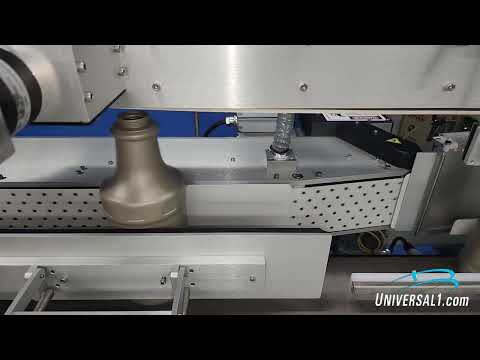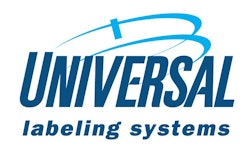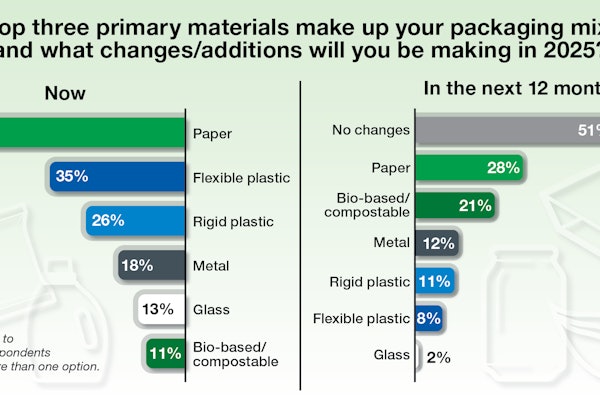Increases in raw materials and packaging costs are pressuring relationships between product manufacturers and contract packagers. The need to control costs is particularly important in shipping “cold chain” products globally, and pharmaceutical and biopharmaceutical companies are seeking budget-saving alternatives in packaging temperature-sensitive products effectively and shipping them worldwide.
Places to look to ease this pressure include the packaging materials and how they are used. One area that is ripe for review in reducing excessive costs is the capabilities of containers used in shipping temperature-sensitive products. New materials are coming on the market that, when used with the right products, can help medical product manufacturers—and potentially marketers of packaged foods—by keeping the product at the required temperature and also trimming waste during distribution.
Among these materials are thermal insulators, and one of the new ones on the market is Aeroblack™, an enhanced form of aerogel, from American Aerogel Corp. In the biomedical industry, Advanced BioHealing Inc., a La Jolla, CA, biotechnology products company, uses Aeroblack panels in its master cases to extend the time that the desired subzero temperature can be maintained inside cartons containing an advanced wound-care product. Besides extended “shelf life,” Advanced BioHealing has reduced the shipping carton size 30% by switching from polyurethane containers and has cut shipping costs by 40%.
In its simplest form, aerogel is a very low-density, low-porosity, open-cell material that is 95% or more air. It consists of a gel of alcohol- and silicon dioxide-based molecules that are linked together. When the mixture is exposed to heat and pressure, the alcohol slowly vaporizes and escapes, leaving the solid material intact as a massive surface area with the capability to maintain temperature-sensitive products under optimum shipping conditions.
Aerogel, also known as “frozen smoke,” has been around since the 1930s in industries such as coatings and insulation. But Dennis Young, American Aerogel CEO, believes the time is right to extend aerogel more widely into packaging.
“The problem has been that it's very difficult to make a monolithic, solid-piece aerogel, such as in cube form,” Young explains. “Aerogels tend to crack, shrink, and powder. Their performance has been better than some competitive products, but not enough to offset cost.”
Anticipating demand from product manufacturers, American Aerogel has patented technology under the Aeroblack brand that Young claims has overcome production and cost barriers, while preserving the material's physical properties. “It has the strength to be the core material for a vacuum-insulated panel and to give high performance at a price that's appropriate for the packaging insulation market,” Young says.
Product manufacturers and contract packagers in the biomedical, pharmaceutical, and food industries may find that this enhanced form of aerogel meets their needs. That was the case with Advanced BioHealing. By using shipping cartons containing Aeroblack, the company extends the amount of time it can keep its Dermagraft skin-substitute product frozen at the required temperature.
This capability is critical because Advanced BioHealing ships Dermagraft across the United States and to Europe and South Africa. Dermagraft is a cryopreserved human fibroblast-derived dermal substitute and is used in treating diabetic foot ulcers. The product is composed of fibroblasts, extracellular matrix, and a bioabsorbable and dissolvable suture-like material. This composition of materials requires that the product be frozen at -75˚ C (-103˚ F) from the time it is packaged until it is used in a doctor's office.
Advanced BioHealing had been shipping one product per package in larger polyurethane containers packed in lots of dry ice. “We only could validate maintaining the shipment at -75˚ C for 72 hours,” says Gerald Vovis, Advanced BioHealing's vice president and general manager. “Domestic shipping can be done overnight but international shipping requires one to two days. So the doctor's office had to have its own freezer to maintain that temperature once the dry ice expired, and not every doctor's office does.”
Shipping containers incorporating Aeroblack offer several advantages over the former containers, Vovis says.
• Testing has validated that the containers maintain the -75˚ C environment for 105 hours.
• Less dry ice is required than with a polyurethane shipper. The package is lighter, therefore reducing shipping costs.
• Even though the new shipper cartons are smaller, the need for less dry ice enables the carton to hold five Dermagraft units, as opposed to one unit in the former carton, also contributing to savings on freight.
Each Dermagraft piece is 2” to 3” long and designed for a single use. In preparation for shipping, each frozen piece is poly-bagged with a preservative. The poly bag is sealed and then placed in a tri-laminate foil pouch. The pouch, in turn, is packed in a labeled chipboard carton measuring about 3”x5”x1/3”—similar in size to an audio-cassette tape carton, Vovis says. The chipboard cartons are then packed with a smaller quantity of dry ice and placed within the vacuum-insulated panels of the shipping container.
For contract packagers working with temperature-sensitive products, the need to preserve product quality is critical. For example, American Aerogel's Young cites World Health Organization research showing that 50% of all vaccines—with a value of $3.3 billion—spoil during transit. “The risk of loss because of payload spoilage is significant,” he says.
If contract packagers can play a role in reducing spoilage and also reduce shipping costs, they increase their value to their customers, Young explains. In a business-to-consumer scenario, the shipping focus centers primarily on the size and weight of the carton. “Anything you can do to reduce those is a cost bonus,” Young notes.
But in a business-to-business transaction, by working with materials that improve a package's thermal insulation, companies can increase second-day and third-day shipping as an option for lowering shipping costs.
The hypothetical case study in the box on this page compares the cost differences associated with shipping temperature-sensitive medical products internationally in plastic foam and aerogel.
The author, Jim George, is the Editor-in-Chief of Contract Packaging magazine.



























